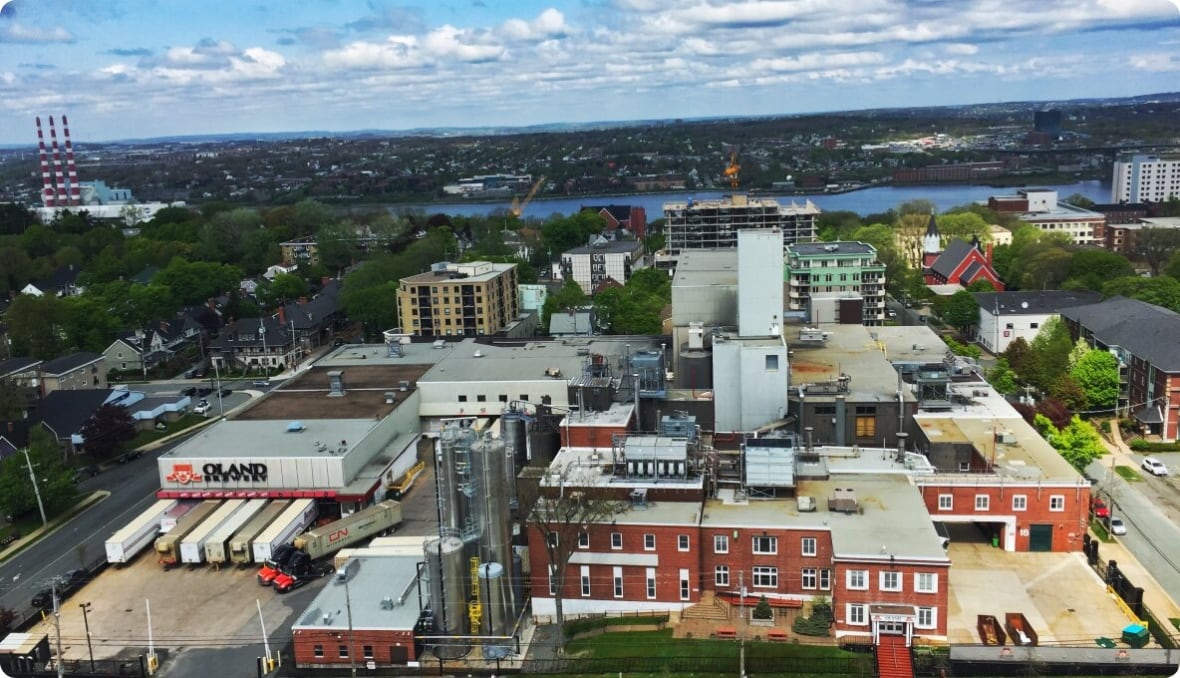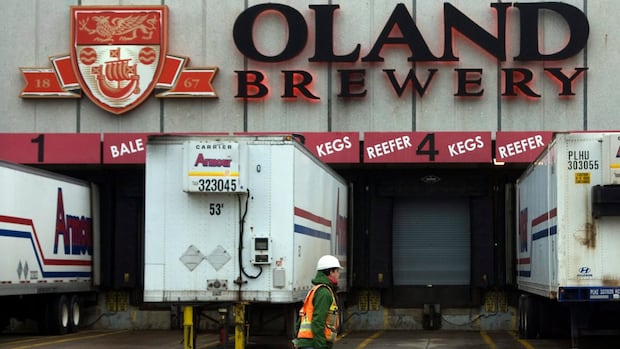An iconic Halifax brand is musing about leaving the province to set up somewhere it can operate more cheaply, blaming looming rate hikes from utilities and other rising costs of business.
Oland Brewery, whose portfolio includes historic Maritime beers Oland Export, Schooner and Alexander Keith’s, threatened relocation in a letter to the Nova Scotia Regulatory and Appeals Board last week.
“As the federal and provincial governments work to remove internal trade barriers, companies like ours may move production to jurisdictions where it is more affordable,” wrote Frederick Tofflemire, the brewery’s general manager.
The letter was filed as part of the regulatory review of a proposed rate increase from Halifax Water.
The utility is seeking two double-digit rate increases in 2026 — one to take effect on Jan. 1 and the other on April 1. The proposed increases range from 15.8 per cent to 24.5 per cent, depending on the size of the water meter. Commercial and industrial buildings typically have larger water meters than homes and would face higher rate jumps.
In his letter, Tofflemire said the increases would “make it significantly harder to do business in Nova Scotia.”
“Nova Scotia is already at a geographic disadvantage. Adding these increased costs makes it extremely challenging to increase our production at the Oland Brewery and threatens existing production levels.”
Tofflemire said the impact of the water rate increase is compounded by rising power rates, increasing natural gas prices and the province’s corporate tax rate. He said the factors, together, “hurt our competitiveness.”
When reached for further comment, an Oland official would not do an interview, saying they preferred to let the letter speak for itself.
‘Flexing muscles,’ says business prof
Lisa Watson, a professor and dean of the Gerald Schwartz School of Business at St. Francis Xavier University, said Oland could probably relocate relatively easily, given it’s owned by Labatt, which in turn is owned by global brewing giant Anheuser-Busch InBev.
Labatt has five other breweries across Canada and Anheuser-Busch InBev operates in dozens of countries. The parent companies’ other sites could likely absorb the current production of the Halifax brewery, Watson said.
Nevertheless, she questioned the sincerity of Oland’s threat.
“I think it’s a little bit of flexing muscles. I don’t think they’re packing their bags and getting ready to go quite yet,” Watson said in an interview.
She noted some of the Oland brews have a loyal following because of their Maritime roots and the continued local production. She said the impact on the brand probably factors into any consideration of moving.
 A special edition print released by Oland Brewery in 2024 to celebrate the centennial of Oland Export. The company touted that the ale is produced only at its Halifax brewery, an image of which is featured in the poster. (Labatt Breweries of Canada)
A special edition print released by Oland Brewery in 2024 to celebrate the centennial of Oland Export. The company touted that the ale is produced only at its Halifax brewery, an image of which is featured in the poster. (Labatt Breweries of Canada)
Watson said she would take the message more seriously if it had come directly from Labatt or Anheuser-Busch InBev, rather than the local manager. The intent, she predicted, was to underscore to the regulator how impactful the proposed rate hikes could be.
“And quite frankly, because they are a long-standing member of this community and they do have weight, it’s appropriate, I think,” Watson said.
According to Oland’s website, the brewery is the province’s largest and produces 16 million 12-packs of beer annually. It employs about 200 people, and its brewery in Halifax’s north end takes up an entire city block. It’s been the site of beer production for more than a century.
‘Death by a thousand cuts’
In spite of Oland’s depiction of Nova Scotia as a bad place to do business, Duncan Robertson said the province has actually made some notable improvements to the business environment in recent years.
 The Oland Brewery in north-end Halifax, seen from above in this undated photo, which is featured on the company’s website. (Labatt Breweries of Canada)
The Oland Brewery in north-end Halifax, seen from above in this undated photo, which is featured on the company’s website. (Labatt Breweries of Canada)
Robertson, director of legislative affairs for Nova Scotia at the Canadian Federation of Independent Business, pointed to a reduction in the small business tax rate, an increase to the threshold to access that rate and a reduction in provincial sales tax.
“I think there needs to be credit … the province is doing good work,” he said in an interview.
But he said the utilities play a significant role in creating a favourable business environment, and he’s hearing a lot of concern from business operators about the rate hikes that are on the table.
“[The utilities] need to provide some kind of forecast on where these rates are going,” he said. “These ad hoc announcements are no way to do business.”
Echoing the message from Tofflemire, the Oland manager, Robertson said the impacts of utility rate increases are compounded by other cost increases. He pointed to rising payroll costs and insurance premiums as two examples.
“It’s been a death by a thousand cuts,” he said.
The proposed Halifax Water rate increases will be scrutinized by the regulatory board and several interveners in a public hearing scheduled for next week.
Oland is an intervener in the case, but a company official told the board it would not be appearing at the hearing. The letter it filed serves as its opening statement.

